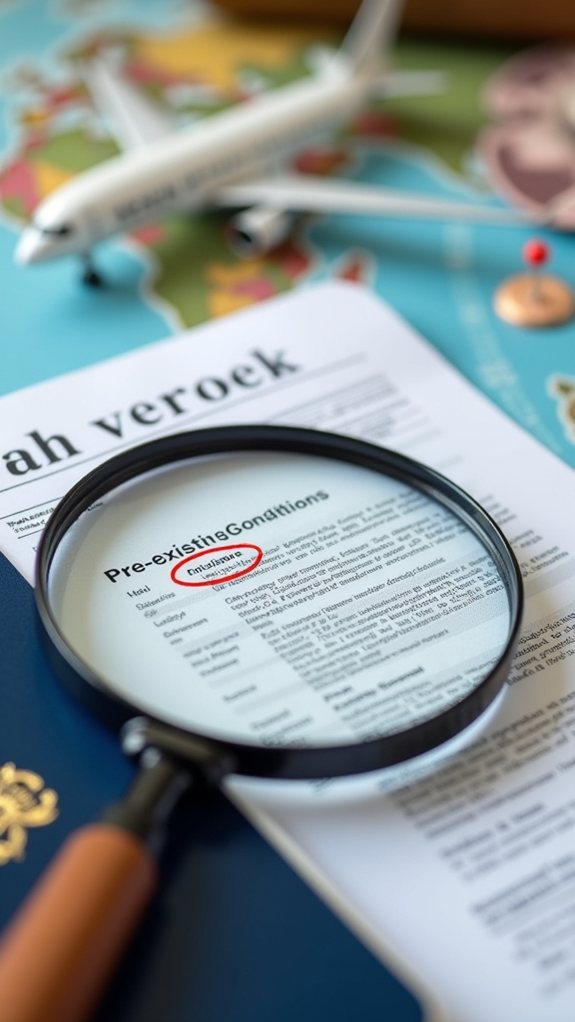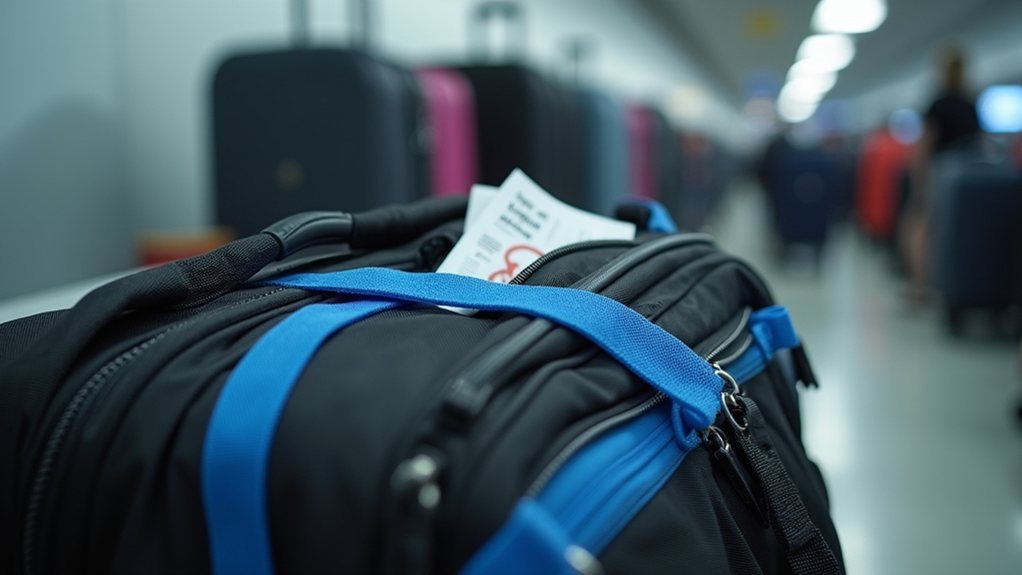Nearly 60% of travelers don’t fully understand what their insurance policies cover, leading to unwelcome surprises during emergencies abroad. When Maria Sanchez arrived in Bali for her dream vacation, she never imagined her policy’s fine print would deny coverage after her scooter accident was classified as “extreme sports.” The devil lurks in these details, often buried in pages of legalese that most vacation-minded folks skip through faster than a customs line on a holiday weekend. What other hidden exclusions might invalidate your safety net?
The Fine Print Can Break Your Vacation

Five essential components make up thorough travel insurance, including trip cancellation, medical coverage, evacuation services, baggage protection, and 24/7 assistance. However, travelers often overlook critical details buried in the fine print, leading to unpleasant surprises when filing claims abroad.
Most policies exclude pre-existing medical conditions unless you’ve purchased a specific waiver within 14-21 days of your initial trip deposit. This seemingly minor timing detail can make the difference between full coverage and a devastating out-of-pocket medical bill in foreign currency.
Act fast: Purchase pre-existing condition waivers within 14-21 days of your deposit or risk substantial medical bills abroad.
Likewise, many travelers don’t realize that civil unrest, increasingly common in popular destinations, typically falls under “foreseeable events” and won’t trigger reimbursement if you cancel your trip.
The ubiquitous “unattended baggage” clause trips up countless travelers annually. That expensive camera left momentarily on a café table in Paris? Not covered if stolen, despite having “extensive” baggage protection. High-value items like jewelry and electronics usually have surprisingly low coverage limits, sometimes capped at just $500 total.
Travel advisories from government agencies can invalidate insurance coverage entirely. If your destination reaches a certain threat level before departure, your policy might become worthless without your knowledge. Savvy travelers check these advisories regularly, especially in regions prone to political volatility or extreme weather events.
Medical evacuation, potentially costing $50,000 or more without insurance, often requires pre-authorization, which means you can’t independently arrange transportation during emergencies. Insurance providers typically insist on coordinating these services through their assistance centers—a detail frequently realized too late.
Travel delay benefits, which sound extensive, generally kick in only after significant waiting periods, often 6-12 hours, and won’t cover the initial night’s accommodation if you miss a connection unless the delay exceeds the specified threshold.
Moreover, alternative medical treatments, even if prescribed by a licensed physician abroad, rarely qualify for reimbursement. Additionally, travelers should be aware that mental health emergencies are frequently excluded from standard travel insurance policies, leaving many without coverage during psychological crises abroad. Adventure enthusiasts should verify their coverage specifically, as many standard policies exclude adventure sports without additional premium payments. When visiting destinations like Las Vegas, travelers should be aware that poor air quality can exacerbate existing respiratory conditions, potentially requiring medical attention not covered by basic insurance plans. It’s worth noting that standard Medicare and Medicaid plans typically provide no coverage overseas, making travel health insurance essential for American travelers venturing internationally.
Understanding these peculiar exclusions and requirements before departing can save travelers considerable frustration and expense, transforming potential vacation disasters into minor inconveniences with proper preparation.






